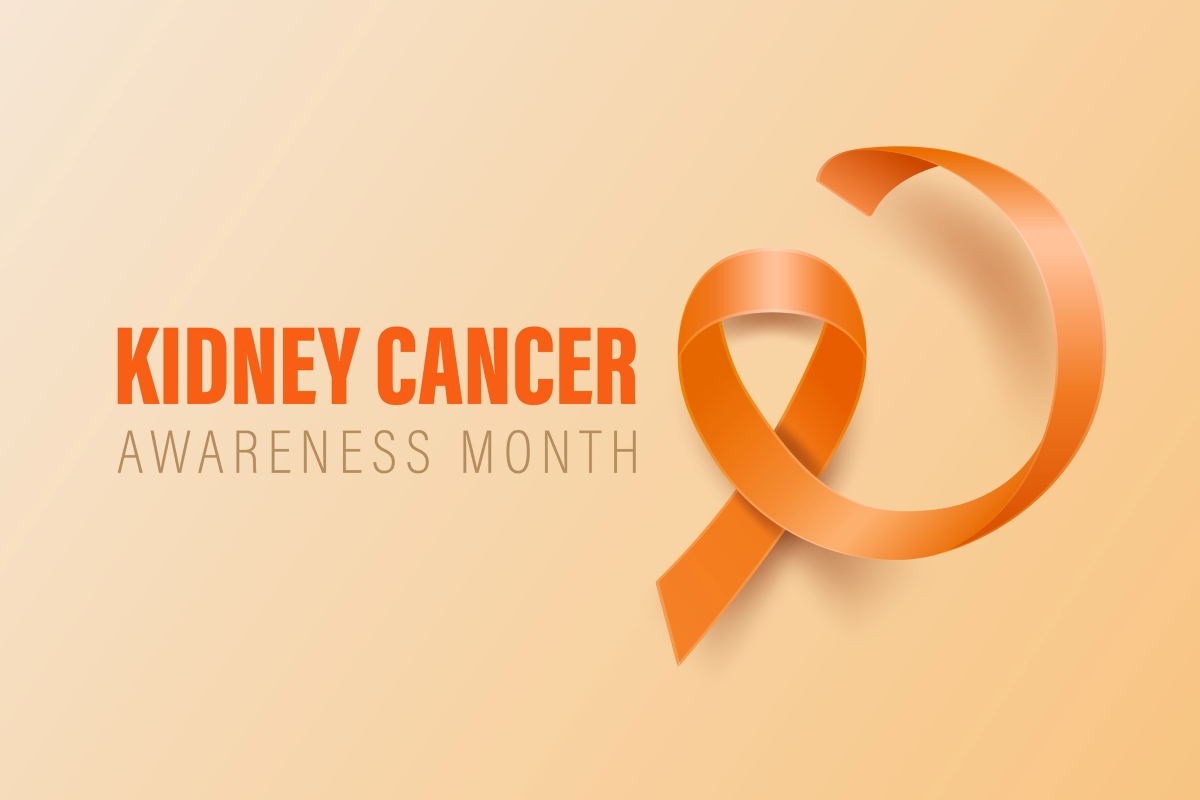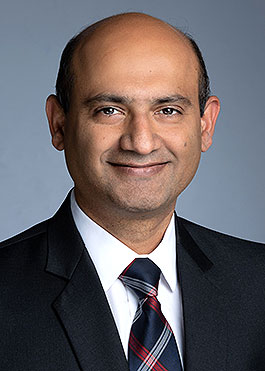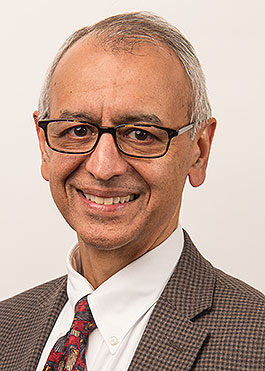
March marks Kidney Cancer Awareness Month.
Renal cell carcinoma (RCC) ranks as the third most common urologic malignancy. In 2024, it’s estimated that there will be 81,610 new cases and 14,390 deaths from RCC in the U.S.1
Currently, only 9% of patients exhibit the classic triad of symptoms: hematuria, abdominal pain and a palpable mass. In recent years, there has been an increase in diagnoses of stage 1 RCC and a decrease in stage 4 disease, largely due to the frequent use of imaging studies leading to incidental findings.
Early-stage RCC
For small renal tumors that can be removed, needle biopsies before surgery should be avoided. Kidney-sparing approaches like partial nephrectomy (kidney removal) are preferred when possible. For tumors under 3 cm, less invasive techniques like cryotherapy or radiofrequency ablation are recommended. In elderly patients with other health issues, active surveillance is appropriate for small tumors. For complex tumors or those involving vascular structures, radical nephrectomy is required.
The use of adjuvant (postoperative) therapy in renal cell carcinoma was debated until recently because past trials with targeted drugs didn't show clear benefits. One study called S-TRAC was the only positive trial that showed improved progression-free survival with sunitinib, a VEGF receptor tyrosine kinase inhibitor (TKI), administered for one year after nephrectomy.2 In another trial called KEYNOTE-564, pembrolizumab was given for one year post-surgery to patients with intermediate to high risk of recurrence. These patients showed improved progression-free survival3 as well as overall survival.4 This trial has set a new standard of care for adjuvant use of pembrolizumab in resected RCC.
Metastatic RCC
In the modern era of treating metastatic RCC with drugs like VEGF-TKIs and immune checkpoint inhibitors, cytoreductive nephrectomy is no longer appropriate for all patients with metastatic RCC. A recent trial called CARMENA showed that for patients with intermediate to poor-risk disease, taking sunitinib without surgery was as good for overall survival as having surgery first followed by sunitinib.5 But surgery is still appropriate for patients with low-risk, low-volume disease. Many combination therapies have been approved in front-line treatment of metastatic RCC. Nivolumab (PDL1 inhibitor) with ipilimumab (CTLA4 inhibitor) demonstrated better overall survival than sunitinib in patients with intermediate or poor-risk metastatic RCC.6 Since 2019, four combinations of VEGF TKI and PD-1/PD-L1 inhibitors have been approved: axitinib + pembrolizumab, axitinib + avelumab, carbozantinib + nivolumab and lenvatinib + pembrolizumab. These regimens have comparable overall survival and response rates, but they can cause side effects like hypertension, diarrhea, fatigue and hypothyroidism. In the second/third-line treatment, axitinib, cabozantinib, lenvatinib, sorafenib, and tivozanib are approved. Studies have shown that patients previously treated with VEGF TKI may still respond to a different VEGF-targeted therapy. A recent trial tested a novel HIF-2α inhibitor belzutifan in metastatic RCC patients previously treated with VEGF and immune checkpoint inhibitor therapies. Compared to everolimus, belzutifan showed better progression-free survival and response rates and fewer side effects, leading to its FDA approval.7 Other treatments like bone-targeting therapies, nutrition support and palliative care have helped improve patients’ quality of life. Participating in clinical trials is important for developing new treatments and improving patient care.
The evolution of RCC management is expected to continue because we’re learning more about tumor biology, discovering new therapeutic agents and rethinking old treatment methods in the context of new and improved systemic therapies.
Learn more about kidney cancer care at Northside.
References:
- Siegel RL, et al. Cancer statistics, 2024. CA Cancer J Clin. 2024 Jan-Feb;74(1):12-49. doi: 10.3322/caac.21820. Epub 2024 Jan 17.
- Ravaud A, et al. Adjuvant sunitinib in high-risk renal-cell carcinoma after nephrectomy. N Engl J Med. 2016 Dec 8;375(23):2246-2254. doi: 10.1056/NEJMoa1611406. Epub 2016 Oct 9.
- Choueiri TK, et al. Cabozantinib versus everolimus in advanced renal-cell carcinoma. N Engl J Med. 2015 Nov 5;373(19):1814-23. doi: 10.1056/NEJMoa1510016. Epub 2015 Sep 25.
- Choueiri TK, Tomczak P, Park SH, et al. Overall survival results from the phase 3 KEYNOTE-564 study of adjuvant pembrolizumab versus placebo for the treatment of clear cell renal cell carcinoma (ccRCC). J Clin Oncol. 2024,42(suppl 4):LBA359.
- Méjean A, et al. Sunitinib alone or after nephrectomy in metastatic renal-cell carcinoma. N Engl J Med. 2018 Aug 2;379(5):417-427. doi: 10.1056/NEJMoa1803675. Epub 2018 Jun 3.
- Motzer RJ, et al. Nivolumab plus ipilimumab versus sunitinib in advanced renal-cell carcinoma. N Engl J Med. 2018 Apr 5;378(14):1277-1290. doi: 10.1056/NEJMoa1712126. Epub 2018 Mar 21.
- Albiges, L., et al. "LBA88 Belzutifan versus everolimus in participants (pts) with previously treated advanced clear cell renal cell carcinoma (ccRCC): Randomized open-label phase III LITESPARK-005 study." Abstract. Volume 34, Supplement 2, pp. S1329-S1330. October 2023. doi:10.1016/j.annonc.2023.10.090.



